
Blinds • Drapes • Tiles • Shutters • Awnings • Wallpaper and all other things interior, measured and fitted for you

Showroom
108 Tarbert Street, Alexandra
Monday to Friday 9am to 5pm
Saturday 9am to 1pm
03 662 9780 design@centralinteriors.co.nz




Blinds • Drapes • Tiles • Shutters • Awnings • Wallpaper and all other things interior, measured and fitted for you

Showroom
108 Tarbert Street, Alexandra
Monday to Friday 9am to 5pm
Saturday 9am to 1pm
03 662 9780 design@centralinteriors.co.nz


Let your unique style shine through as we bring your vision to life from concept to installation.










This issue of Plus Living opens up with an article looking at how to be alone, but not lonely, as the silent struggle of confronting loneliness in older age is a battle many people face.
Along these lines, we also look at how to navigate the festive holiday season after the recent loss of a loved one, as well as ways to control Xmas expenses. You’ll find valuable information about choosing the perfect charity for you, how to beat procrastination and avoiding the perennial threat of influenza.
There are articles on what it means to be ‘sober curious’, the quiet role technology now plays in helping you get a good night’s sleep, and if you’re hitting the road, how to pack to perfection. Also rediscover fashion over 50, getting enough fibre in your diet and the freedom of decluttering and much more.
Enjoy.

Publisher: The Job Agency Ltd 38 Lowe Street, Addington, Christchurch 8011
Managing Director: Gary Collins
GM of Operations: Kylie Palermo
Sales Manger: Angela Elley (03) 961 5184 | sales@markat.co.nz
Art Director: Jarred Shakespeare (03) 961 5088 | jarred@markat.co.nz
Design: Jessica Ann
Product Coordinator Manager: Amber Mundy (03) 961 5075 | amber@markat.co.nz
Accounts: (03) 961 5050 | accounts@markat.co.nz





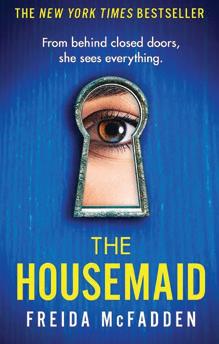

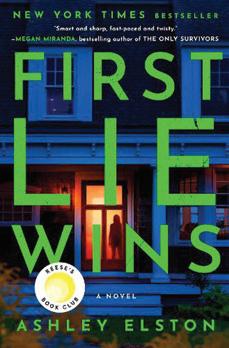


and more. Our aim is to provide information anyone can use, on any given day, so you can get more out of life.
or

By Jamie Quinn

Upgrade your living room with this mid-century modern chair. Its sleek silhouette, subtle curves, and tapered wooden legs add a touch of chic sophistication while creating a light and airy feel in your space.
RRP $1099.00 www.targetfurniture.co.nz
Design Republique Sophia Ribbed Faux Fur Throw

Elevate your interior design with the luxurious Sophia Ribbed Faux Fur Throw in chocolate brown. This cosy blanket is the perfect accent piece to add a touch of elegance and warmth to your living room.
RRP $149.90
www.bedbathandbeyond.co.nz



Hadley Spiced Berry Check Cushion
Breathe new life into your living space with the Hadley Check Cushion. This fun accent piece is the perfect pick-me-up for any sofa or armchair in need of a refresh. This beautifully crafted pillow features a classic tufted check pattern and a colour palette that blends seamlessly with most décor.
RRP $99.99 www.adairs.co.nz
DISCLAIMER: Please note prices listed here are recommended retail pricing. Prices are subject to change at the discretion of the seller. The information on this page is for information purposes only. The Job Agency T|A Markat assumes no liability or responsibility for any inaccurate, delayed or incomplete information, nor for any actions taken in reliance thereon.
This sleek and stylish lamp features a contemporary design that will instantly elevate the ambience of any room. Its soft, diffused light creates a warm and inviting atmosphere, perfect for illuminating your favourite reading nook or casting a gentle glow over your living space.
RRP $42.00 www.kmart.co.nz

This full-length mirror features a unique, wavy design that adds a quirky personality to any room. The soft curves of the mirror frame contrast beautifully with straight lines, creating a visually interesting look. Featuring a plush velvet frame in rich chocolate brown, this mirror is sure to be a conversation starter!
RRP $199.99 www.onceit.co.nz

By Jamie Quinn
So, you've hit your 50s. You've lived through decades of experiences, challenges, triumphs, and all those little moments that shape who you are.
You've seen fashion trends come and go, witnessed hairstyles rise and fall, and you might even have a few outfits tucked away that once defined your sense of style. But here’s the thing—your journey is far from over. In fact, this next chapter can be your best one yet when it comes to expressing yourself through fashion.
You’ve got a wardrobe of memories to pull from, and now you’re in a position to curate a style that truly reflects who you are today. Let’s rewind for a moment. Remember when you were 15, flipping through magazines, daydreaming about that perfect leather jacket? Or the excitement of slipping into that little black dress for your first big night out? That same joy and thrill for fashion is still available to you—age has nothing to do with it. In fact, your life experiences only add to the creativity of your style.
This stage in your life offers the opportunity for self-discovery. Ask yourself: What makes you feel amazing? What clothes do you put on that instantly lift your spirits or make you feel confident? You’re not just following trends anymore—you’re leading the way in your own life. It’s time to think about what makes you feel confident, comfortable, and genuinely you.
Do you gravitate toward bright, bold colours, or does a soft, neutral palette make you feel at peace? Maybe you’ve always loved classic cuts and timeless pieces, or perhaps you’re excited by the idea of experimenting with modern trends. The beauty of being in your 50s is that you’re not bound by the rules of fashion; you’re free to embrace what works for you and leave the rest behind.
One of the best things about fashion is that it’s an ongoing conversation with yourself. And in this chapter, you get to be as adventurous as you like! Want to try mixing bold patterns? Go for it. Curious about how a new silhouette might work with your figure? Give it a spin. Experimenting with different styles and stepping outside your comfort zone is not just fun—it’s empowering.
Don’t worry if some outfits don’t work out as planned. The key is to have fun and enjoy the process. Sometimes, the best discoveries happen when you least expect them. That quirky jacket you weren’t sure about might just become your go-to piece for all your future outings.
While experimenting with fashion is exciting, it’s equally important to have a few timeless staples in your wardrobe. Think of these as your fashion foundation—the pieces you can always rely on. A well-tailored blazer, a classic little black dress, and a pair of high-quality jeans can serve as the building blocks of countless outfits. These are the items you can dress up with a statement necklace for a night out or dress down with a simple tee for a casual lunch.
Quality over quantity is key here. Investing in pieces that are well-made and long-lasting ensures they’ll stand the test of time. Plus, there’s something deeply satisfying about wearing clothes that fit perfectly and make you feel effortlessly chic.
The goal is to feel amazing in your clothes. When you do, that confidence radiates outward.

Your body has been through a lot over the years, and it deserves to be celebrated! Forget about hiding so-called flaws. Fashion in your 50s is about embracing your shape, your curves, and your individuality. It’s not about following restrictive rules but about highlighting what makes you feel confident.
Look for clothing that enhances your best features— whether it’s a dress that cinches at the waist, a top that shows off your shoulders, or pants that elongate your legs. The goal is to feel amazing in your clothes. When you do, that confidence radiates outward.
Let’s be honest—comfort becomes more of a priority as we get older, and there’s absolutely no shame in that. But comfort doesn’t mean sacrificing style. Well-fitting clothes, breathable fabrics, and smart design are all part of the modern fashion equation. A comfortable garment that looks fantastic can boost your mood and energy levels like nothing else.
Don’t settle for anything less than clothes that feel good on your body. Pay attention to the cut, fit, and fabric, making sure they work for you. When your clothes allow you to move freely and feel at ease, they’ll become your everyday go-to items.
Accessories are the icing on the cake when it comes to completing an outfit. They add flair, personality, and a touch of individuality to your look. This is where you can really let your creativity run wild. Accessories are a fun and easy way to update your wardrobe without overhauling your entire closet.
A great handbag, a statement necklace, or even a well-chosen hat can completely transform an outfit. Don’t be afraid to experiment here, either—sometimes, the smallest details make the biggest impact.
Let’s get one thing straight: the most important part of any outfit is the confidence you wear with it. You’ve lived, learned, and grown into the person you are today, and that kind of confidence can’t be bought. When you feel good in your clothes, it shows. There’s nothing more stylish than someone who’s comfortable in their own skin and isn’t afraid to express themselves.
So, don’t hold back. Wear what makes you feel vibrant, powerful, and authentic. When you feel good, you’ll look good—and that’s the secret to timeless style.
If you’re not sure where to start, look around for inspiration. Social media, blogs, and magazines are full of ideas and trends that might spark something in you. You don’t have to copy anyone’s style exactly—just pick and choose the elements that resonate with you.
Follow fashion influencers who align with your tastes, and see how they put outfits together. Maybe it’s the way they layer a jacket or the way they mix textures. Incorporate these ideas into your wardrobe and make them your own.
Ultimately, fashion is about more than just clothes—it’s about expressing who you are. It’s an ongoing journey of discovery, self-expression, and, most importantly, fun. As you embrace your 50s, remember that your style is your own to define. It’s not about fitting into a mould or following rules—it’s about celebrating who you are and where you’ve been.


Family traditions are the cherished threads that weave together the fabric of our lives. These rituals, whether grand or simple, create an invaluable sense of continuity and belonging. They are not just practices passed down from generation to generation; they are the heartbeats of our familial connections.
One of the most profound impacts of family traditions is their ability to bridge the gap between generations. In an area where technological advancements often create a divide, these traditions serve as common ground. Grandparents, parents and grandchildren come together, sharing stories, recipes, and experiences that strengthen their bonds. Participating in and passing down these traditions offers a sense of purpose and fulfilment. It is a way to impart wisdom, share joy, and ensure that the family legacy continues.
The memories created through family traditions are irreplaceable. Whether it’s the annual holiday gathering, a summer family reunion, or a simple Sunday dinner, these moments become the stories we tell and retell. These memories are especially precious as they serve as a reminder of the love and laughter shared with family. Looking back on these traditions provides comfort and joy, reinforcing a sense of identity and belonging.
By Paige O'Brien
Engaging in family traditions has been shown to promote emotional well-being. These rituals provide structure and predictability, which are comforting, especially in times of change. Traditions offer stability and a sense of normalcy. They provide an opportunity to celebrate life’s milestones and cope with its challenges within the supportive embrace of family.
Family traditions contribute to a strong sense of identity. They are a way of expressing who we are and where we come from. Reflecting on these traditions can be a journey of self-discovery and reaffirmation. It is an opportunity to reconnect with our roots and celebrate our heritage. By involving younger generations in these traditions, we help instil a sense of pride and identity in our children and grandchildren, ensuring that the family’s values and stories are preserved.
It is crucial to ensure that family traditions continue. As society changes and evolves, maintaining these rituals helps anchor us to our core values and history. Ensuring that traditions are passed down to younger generations fosters a sense of continuity and connection. It teaches them about their heritage and the importance of family. This continuity not only enriches their lives but also strengthens the entire family unit.
Family traditions provide a meaningful way to spend time together. Whether it’s planning and organising a family event, cooking a traditional meal, or simply participating in a long-standing family game, these activities keep everyone engaged and active. This not only enhances physical well-being but also keeps minds sharp and spirits high.
Embracing and continuing these traditions is a beautiful way to celebrate family and ensure that its legacy thrives for generations to come. By making a concerted effort to pass these traditions down the line, we ensure that the values and stories of our family remain vibrant and alive, enriching the lives of those who come after us.


'Every year, bereaved New Zealand families are paying lawyers millions more than they need to, for basic paperwork, after a loved one dies' - says Kiwilaw lawyer, Cheryl Simes.
Spurred by a local client who needed letters of administration, Cheryl has developed a nationwide online service for bereaved families who need High Court approval ('probate') before they can uplift their loved one's financial assets or deal with their loved one's land. Although now based in North Canterbury, Cheryl's service is available anywhere in New Zealand or indeed overseas.
Probate is usually needed even if there is a valid will.
'Bereavement is hard. But before agreeing to anything, ask your lawyer for a specific probate estimate.
'Most lawyers charge from $1,000 to $3,000 just for probate, not counting the rest of the estate administration.'
Check the fee, before you agree.
It really is straightforward. An initial no-obligation online screening checks the will and any complications. If extra fees are required, you are told at that point. To go ahead, you answer questions in a simple online interview. Court-ready documents then arrive at your door, complete with instructions on what needs to be signed, how, where, and by whom, and how to send everything to the High Court for processing.
Where there's a valid will, Kiwilaw's fee is usually just $490 and you pay the $260 High Court fee direct.

Emotional regulation is needed in order to adapt to life’s everchanging circumstances. It’s about acknowledging and directing emotions in a way that aligns with personal goals and values. This skill becomes more valuable as we navigate various life transitions, offering a way to handle feelings such as loss or loneliness effectively.
Emotional regulation involves more than just controlling your feelings; it’s about understanding and managing them constructively. This process is important for emotional health and maintaining relationships, regardless of age or life stage.
• Mindfulness and meditation are powerful tools for anyone looking to build their emotional regulation. Focusing on present-moment awareness can mitigate worries about the past or future, enhancing overall mood and resilience.
• Establishing a structured routine provides stability and can significantly reduce stress. Regular activities like morning walks, reading, or being social create a predictable and comforting daily rhythm.
• Exploring hobbies and lifelong learning can also enrich emotional life. Whether it’s gardening, painting, or learning a new instrument, these activities provide joy, satisfaction, and a sense of accomplishment.
• Social connections play an important role in emotional wellbeing. Engaging with friends, joining clubs, or volunteering provides valuable emotional support and helps maintain a positive outlook.
• For those times when emotions feel overwhelming, professional guidance from therapists or counsellors can be invaluable. These experts assist in developing strategies to understand and manage emotions effectively.
Embracing emotional regulation techniques offers a way to enhance life’s quality at any stage. By managing how we react to and process our feelings, we can enjoy more fulfilling relationships and a richer, more balanced life. It’s not just about managing time – it’s about managing how we feel within time, ensuring every day is lived to its fullest potential.




Worried you’ve spent too much time in sun? Or concerned about a new or changing mole? Give your skin its best chance with an expert skin cancer check by MoleMap.
Melanoma is fast growing and can quickly become deadly.
1. Around 4,000 New Zealanders will be diagnosed with it this year alone.
2. Approximately 70% of those cases will be in people aged 50 years and older.
3. However, the good news is that melanoma is almost always preventable if it’s detected early enough.
We check. And double-check. With MoleMap you get two sets of expert eyes examining any moles of concern: a trained Melanographer and an experienced specialist Dermatologist.
Fewer scars. Fewer scares. Because MoleMap can more accurately identify melanoma, there is less need to surgically remove benign (harmless) moles.1
Early detection makes a difference.
Early melanoma detection offers a nearly 100% chance of survival within 5 years? That’s why it’s always worth checking.
References: 1. https://www.melanoma.org.nz/early-detection 2,3. https://www.melanoma.org.nz/facts-risk-factors
Did you know that New Zealand has the highest rate of melanoma in the world? Every day, around 7 New Zealanders are diagnosed with melanoma - it’s the most serious form of skin cancer and it can quickly become deadly. 1,2
That’s why MoleMap’s proven skin-mapping system is designed to detect skin cancers such as melanoma early – when it’s most treatable. 3
Know that your skin is in check with 15% off all MoleMap services for SuperGold cardholders – simply book online at molemap.co.nz or call 0800 665 362 and use the promo code ‘GOLD15’.
Clinics held daily in Dunedin. Regular clinics in Oamaru, Queenstown, Clyde and Wanaka
0800 665 362 | molemap.co.nz
References:
1. Health Promotion Agency and the Melanoma Network of New Zealand (MelNet) 2017: New Zealand Skin Cancer Primary Prevention and Early Detection Strategy 2017 to 2022.
2. https://www.melanoma.org.nz/facts-risk-factors
3. https://www.melanoma.org.nz/early-detection





We believe every resident deserves care that respects their dignity, privacy, and individuality. Our dedicated staff approach their duties with compassion, professionalism, and accountability, ensuring thoughtful, attentive support.
Aligned with our vision of "Aging Well," we are dedicated to helping residents live fully, participate in their communities, and stay connected with family, while providing the highest standard of care..
By Jamie Quinn
When retirement comes around, many of us suddenly find we have more time on our hands and are looking for ways to fill it.
While some dive into hobbies or travel, others look for a bit of companionship—and that’s where dogs come in. Not only do dogs offer great company, but they also help keep us active and bring so much joy into our lives. Here in New Zealand, we’re huge pet lovers—about 64% of households have a pet, and nearly one third of us own a dog! It’s no surprise, really, given how much pets can enrich our lives, especially during retirement.
Dogs can help reduce stress, alleviate feelings of loneliness, and even encourage retirees to stay active. Regular walks not only keep your dog healthy but also provide a great way for you to get outdoors, stay fit, and meet other dog owners. In fact, studies have shown that dog owners are more likely to meet daily exercise recommendations, which can help improve cardiovascular health and mobility as we age.
Dogs also provide a sense of purpose. Having a routine centred around feeding, walking, and caring for your dog can bring structure to your day, especially during retirement when time can often feel open-ended. Plus, the companionship and unconditional love they provide can help combat loneliness, which is something many retirees struggle with.
If you’re a retiree considering bringing a four-legged friend into your life, it’s essential to find a breed that fits your lifestyle. Choosing the perfect dog breed isn’t just about picking the cutest pup. It’s important to think about your lifestyle and what kind of dog fits best. Are you living in a small apartment, or do you have a backyard for a bigger dog to run around in? Do you enjoy long, energetic walks, or would you prefer a low-key pet that’s happy with short strolls?
Not all dog breeds are created equal when it comes to matching the lifestyle of retirees. Here’s a look at some breeds that are especially suited for older adults.
If you're looking for a small, affectionate dog that loves to cuddle, this breed could be your perfect match. Cavaliers are known for their calm and friendly nature, which makes them wonderful companions for retirees.

They enjoy lounging around and being close to their owner, but they’re also up for a bit of playtime when the mood strikes. Plus, their manageable size means they’re ideal for apartment living or homes without much outdoor space.
However, they do have their quirks. Cavaliers can be prone to heart issues, which might lead to higher vet bills over time. Their long, flowing coats also require regular grooming to keep them looking sharp. But if you’re after a gentle, low-energy dog with plenty of love to give, the Cavalier King Charles Spaniel could be a great fit for your retirement years.
These dogs are incredibly smart and easy to train, making them a fantastic option for retirees who want a dog that can pick up new tricks quickly. Poodles are also hypoallergenic, which is a major plus if you’re worried about allergies or simply prefer a cleaner home. They don’t shed much, and their small size makes them easy to manage, whether you live in a cosy apartment or a larger home.


The catch with Poodles is their grooming needs. Their curly coats require regular upkeep, either with home grooming or trips to the groomer. On the flip side, their intelligence means they need mental stimulation, so you’ll want to keep them engaged with toys and activities. If you enjoy a little more engagement and are up for a bit of maintenance, a Poodle can be a loyal and fun companion in retirement.

Shih Tzus are known for being affectionate lap dogs who are happy to spend time relaxing with their owners. They don’t need much space, making them ideal for apartment living, and their calm demeanour is perfect if you’re looking for a quieter dog.

That said, Shih Tzus do have long coats that require regular grooming, though you can opt to keep their fur short to reduce the hassle. They can also be a bit stubborn, so training might take a bit more patience. But for retirees who want a lowenergy, loving companion, the Shih Tzu is an excellent choice.
A breed known for its cheerful and friendly nature. Bichons are small, making them perfect for retirees who want a dog that’s easy to manage in terms of both space and exercise. They’re also hypoallergenic, so if you have any concerns about shedding or allergies, this breed could be the answer. Bichons are low-maintenance when it comes to activity, but they do enjoy playtime and walks.

For retirees with a bit more space and a love for bigger dogs, the Golden Retriever is a classic choice. Golden Retrievers are famously friendly and affectionate, making them great for retirees who often have visitors or grandchildren.

Their easygoing, loyal nature makes them perfect for those looking for a larger companion to share their days with. Golden Retrievers are also relatively easy to train and love being part of the family.
However, they do require more exercise compared to smaller breeds. If you're not up for daily walks or playtime in the yard, they might not be the best choice. Additionally, their thick coats shed frequently and will need regular grooming. If you’re active and ready to commit to some exercise and maintenance, the Golden Retriever’s companionship is hard to beat.
Like Poodles, Bichons require regular grooming to keep their fluffy coats looking their best. They can also be prone to bursts of energy, so a little patience is necessary during playtime. For retirees who want a small, joyful companion, the Bichon Frise is a great option.
Dogs can help reduce stress, alleviate feelings of loneliness, and even encourage retirees to stay active.





Otago Petfoods is a locally owned and operated family business. We provide pets, working dogs and farm animals around the South Island with premium, affordable pet food, supplements and accessories.
For Bulk orders (20kg and over) of frozen pet food please contact us on orders@otagopetfoods.co.nz so we can work out the cheapest shipping option for you.
0800 RAW4PETS
0800 729473 | 03-489 1555 office@otagopetfoods.co.nz

OPEN HOURS Mon to Fri: 8:00am - 5:30pm Sat: 10am-3pm | Sun: Closed

Adventure—what does it really mean? For some, it’s jumping out of planes or diving into the deep sea. But adventure is much more than extreme sports. It’s about stepping out of your comfort zone and embracing the unknown, whatever that might be for you.
The dictionary says adventure is an exciting or hazardous experience, but it’s completely personal. What feels like a thrill to one person might be something small to another. That’s the beauty of adventure; it’s different for everyone.
For some, the classic image of adventure—travelling to exotic places, engaging in extreme sports, or embarking on daring expeditions— might fit perfectly. But for others, adventure can be far more personal. It might mean starting a new career, launching a business, or even doing something as seemingly simple as trying a new hobby or connecting with someone new. At its core, adventure is about pushing your boundaries and challenging yourself, even if that means doing something you wouldn’t normally do.
The thing is, adventure doesn’t have to be some grand gesture or event. It’s woven into our everyday lives. Have you ever taken a different route to work just to see where it leads? Or tried a new dish at a restaurant you’ve been going to for years? These may seem like small actions, but they’re adventures in their own right. They shake up the routine, make you see things differently, and add a little excitement to your day.
Stepping out of your comfort zone is where the magic of adventure happens. It’s about taking that leap, even when you’re unsure of the outcome. There’s a certain thrill in diving into the unknown— whether it’s something as big as moving to a new city or as small as
By Jamie Quinn
striking up a conversation with a stranger. In those moments, you grow, learn, and experience the world in a new way.
Let’s not forget that adventure can be about relationships, too. Some of life’s greatest adventures involve the people we connect with—starting a family, raising children, or building meaningful friendships. These experiences shape who we are and require the same kind of courage, dedication, and passion that we associate with more traditional ideas of adventure.
Even in the most ordinary moments, there’s an opportunity to approach life with an adventurous spirit. Instead of looking at your daily routine as mundane, you can choose to see it as an ongoing journey. Maybe that road trip you’ve been planning isn’t about the destination but about the memories you’ll make along the way. Or perhaps it’s about finding joy in the small things, like spending time with loved ones, exploring your neighbourhood, or trying something new just for the fun of it.
In the end, adventure is what you make it. It’s not defined by grand, sweeping gestures but by the way you approach life. It’s about having the courage to face new challenges, the curiosity to explore the world around you, and the enthusiasm to embrace each day with a sense of wonder. Whether you’re trekking through a jungle, navigating the ups and downs of your career, or just finding excitement in your everyday routine, you’re on an adventure.
So, don’t limit yourself to the idea that adventure is only for the bold and daring. It’s a choice that you can make every day. Step out of your comfort zone, take risks, and explore life with passion. After all, life itself is the greatest adventure, and it’s up to you to decide how you’re going to live it.









Imagine a cosy evening surrounded by friends who share your passion for books. You're discussing a captivating novel, sharing your thoughts and insights, and discovering new perspectives.
That's the magic of a book club. Starting your own book club is a fantastic way to connect with like-minded individuals, explore new literary worlds, and foster a sense of community. Here’s how to start your own:
Start by reaching out to friends, family or co-workers who share your love of reading. Take advantage of social media to find likeminded people, and join book club groups to post about your intentions and invite others to join. Encourage members to spread the word about your book club to attract new members.
Decide on a location that is convenient for everyone. Options could be libraries, coffee shops, community centres, or member homes.
Determine how often you want to meet, e.g., fortnightly or monthly. Choose a day and time that works for your members.
Decide how books will be chosen. You can do this by:
Voting: Members suggest a book and vote on their favourites.
Theme: Choose books based on a theme or genre.
Curator: Appoint a member to select books.

Take turns: Each member takes turns choosing a book. Make sure your book selections cover a range of genres, authors, and perspectives to cater to diverse interests.
Start each meeting with a fun icebreaker to keep things social and encourage participation. The aim is to create a welcoming and inclusive atmosphere where everyone feels comfortable sharing their thoughts and opinions.
Consider using a structured discussion format, such as a book circle or a debate, to keep the conversation focused and engaging.
Develop thought-provoking questions to guide discussions. Consider questions that explore themes, characters, plot, and the author's style.
Rotate the role of facilitator among members to give everyone a chance to lead the conversation.
Book-to-film discussions: Watch a movie adaptation of a book and discuss the similarities and differences between the two mediums.
Reading challenges: Encourage members to participate in reading challenges, such as reading a certain number of books in a year or reading books from a specific genre.
Book club bingo: Create a bingo card with different reading criteria and challenge members to complete a row or column.

Check out this selection of 2024’s best-sellers.
By Jamie Quinn

The Women is a poignant novel that follows a group of female nurses serving in the Vietnam War. The story centres on Frances "Frankie" McGrath, who enlists after her brother's death. It explores the challenges, sacrifices, and enduring bonds formed by these women as they navigate the horrors of war and societal indifference upon their return.
This suspenseful thriller follows a young woman named Greta, who accepts a nanny position in a wealthy family's isolated mansion. As she settles into her new life, Greta begins to uncover disturbing secrets about the family and their past. With a growing sense of unease, she realises that she may be trapped in a dangerous game where trust is fragile, and everyone has something to hide.


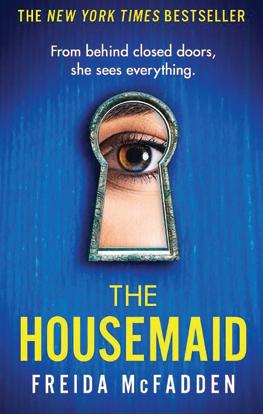
In this gripping thriller, a woman named Emily becomes entangled in a dangerous game of deception and blackmail. After witnessing a murder, Emily finds herself caught between the powerful individuals involved and must navigate a web of lies and secrets to protect herself and her loved ones.
She Was Gone by Lisa Jewell
Then She Was Gone follows the disappearance of Laurel. As the investigation unfolds, the lives of her family and friends are turned upside down. The novel explores the complexities of grief, the dark secrets that can be hidden within a seemingly perfect community, and the lengths people will go to protect their loved ones.

In the latest Jack Reacher adventure, Reacher finds himself in a small town where a mysterious disappearance has left the locals shaken. As he delves deeper into the case, Reacher uncovers a web of corruption and danger that threatens to engulf the entire community.

By Jonathan Taylor

Most people have experienced “time regret” – that feeling of frustration over yet another day passing by without having made a significant dent in the ‘to do’ list.
Both work and home life is easily derailed by time-eaters such as meetings, ad hoc requests and the distractions enabled by technology – including email and mobile phones.
Having difficulty meeting goals is a common problem both professionally and personally. The situation can be greatly improved however, by making some simple adjustments.
The real secret to time management – and accomplishing objectives – is better self-management. Here are six tips that can help you take control of your day.
Where does your time really go? For the next week, make a point to write down what you do and when during either the work day, or when you have a lot of errands to run. Examining how you spend a typical day will help you to identify when you are most productive and in what ways (or by whom) you are most often interrupted or distracted.
After you’ve determined what can be changed in your current schedule, develop an action plan. Think about setting aside “time windows” for specific tasks, such as reviewing emails, making and returning phone calls, or doing those daily things that just need to be done. Also, create a regular schedule that takes advantage of your body clock – if you are sharpest before lunchtime, schedule more difficult tasks for completion in the morning hours.
Keeping a constant vigil on your email and voicemail can distract you from more demanding tasks and can end up occupying lots of time. Schedule times throughout the day when you focus exclusively on messages. You’ll cut down on ongoing anxiety while making your responses less hasty and more useful.
You can’t solve a technical challenge while talking on the phone, filing paperwork or planning for an upcoming event. When you’re occupied with something important, give the issue at hand your undivided attention so you do it right the first time. Fight the urge to multitask, which often impedes your ability to get already started tasks finished.
This is a good one for work, be it at an office or working from home. If unnecessary interruptions tend to prevent you from completing important tasks, don’t be afraid to close the door, or advise your colleagues that you are off limits for the next few hours, so you can focus on your work.
Keeping to a schedule, no matter how personalised or flexible, is challenging because it takes discipline. Give yourself credit for adhering to your agenda and accomplishing all “must-do-today” items. Be realistic too – some days you will be more productive than others, so don’t worry if you get off track temporarily. Ensure you also create a balanced schedule that makes the most effective use of your time while allowing you to do things for yourself.


Whether you’re a foodie, a wildlife wanderer, or a hidden gem hunter, there’s something for everyone in Waitaki.
Just a three-hour drive from Christchurch or an hour and a half from Dunedin, Waitaki is the perfect destination for a quintessential kiwi holiday.

From the mountains to the sea, Waitaki offers endless adventures you’ll never forget.
Put your foot to the pedal and cycle New Zealand’s longest cycle trail with Alps 2 Ocean. Take a jet boat down the Waitaki River, horse-trek across the Lindis Pass, or glide with a view of the mighty Southern Alps – the options are endless with hikes and fishing spots around every corner.

Indulge in award-winning wine, food and friendly hospitality in Waitaki.
Find exceptional fine dining, breweries, award-winning wineries, globally-recognised cheese, pub grub, and brunch-worthy bakeries from Ōamaru up the Waitaki Valley and along the coast to Dunedin.
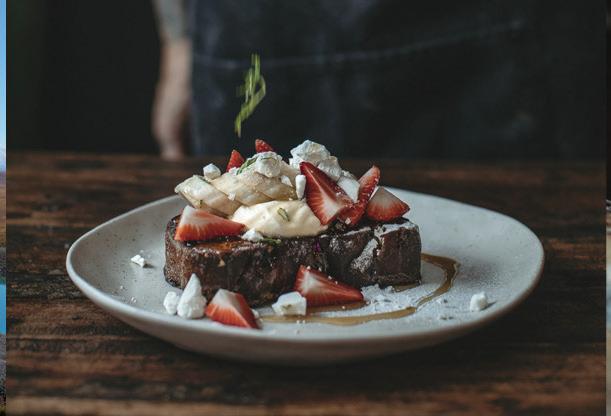
Be captivated by our cutest little residents at the Ōamaru Blue Penguin Colony. See the kororā in their natural environment from a special day viewing area or watch them waddle ashore after a day foraging at sea.
All proceeds go towards ongoing research and conservation.






We all need fibre in our diet, and we all know it's good for us. But how do we get enough fibre to keep us healthy and how much do we really need?
Fibre used to be defined as the plant material that passed through the body undigested. While this is still largely true, it does fibre a bit of a disservice, implying it is inert and possibly unimportant.
Fibre is an important component of a healthy balanced diet. We get fibre from plant-based foods, but it's not something the body can absorb. This means fibre is not a nutrient and contains no calories or vitamins.
• Fibre helps your digestive system to process food and absorb nutrients
• Fibre can help to lower blood cholesterol
• Fibre makes you feel fuller and so helps to control your appetite.
There are two types of fibre: insoluble and soluble. The fact that much fibre passes through us from top to bottom is the basis of one of its important functions. This fibre is known as insoluble, acting like a human bottlebrush, picking up waste along the way.
Its accomplice, soluble fibre, soaks up water, making waste material larger, softer and easier to move through the system.
To work at their best, soluble and insoluble fibre need water, in any form – tea, coffee, juice or water-containing foods as well as water itself.
Dietary recommendations in New Zealand and Australia suggest women should be eating 25g of fibre a day, men 30g, and even higher to reduce long-term illnesses such as heart disease and some cancers.
On average, New Zealand women consume 18g a day, men 23g, falling below our recommendations.
But what do these recommendations mean in terms of food? Are we faced with eating loaves of wholemeal bread, or will just an apple a day suffice? Rest assured there are plenty of high-fibre foods to choose from.

By Jonathan Taylor
Here are some easy ways to increase the fibre content of your breakfast without changing it completely. Just a few additions and adjustments can increase the fibre content dramatically.
• Start by making sure you have breakfast – it's a good meal for fibre-rich foods
• Top breakfast cereals or porridge with stewed fruit or fruit compote
• Add fresh fruit; whatever is in season
• Mix high- and low-fibre cereals together if you find a high-fibre one too much first thing in the morning
• Try one of the high-fibre white breads if you don't enjoy wholemeal
• Add peanut butter as a high fibre spread; marmalade and jam contain very little fibre, despite the peel and pips
• Try a bran muffin instead of a chocolate one
• If you avoid gluten or wheat, fruit salad is a great high-fibre way to start the day.
WATER BLASTING, GIB STOPPING, INTERIOR/EXTERIOR, RENOVATIONS/NEW BUILDS, WALLPAPER HANGING, AIRLESS SPRAYING
MONDAY - FRIDAY : 7:30AM – 5:00PM | SATURDAY - SUNDAY : BY APPOINTMENT













By Jamie Quinn
I recently embarked on a decluttering journey. It was challenging, for sure, but the sense of accomplishment and freedom I felt afterwards was incredible.
I realised that holding onto things I no longer needed or used was preventing me from truly living in the present moment. By letting go of the excess, I created space in my home and my life for what truly matters.
When we think about decluttering, we often focus on the physical objects in our homes. But the truth is, it’s not just about the stuff. Every item we own carries a story, a memory, or a hope for the future.
Perhaps you’re holding onto your children’s old toys, clinging to a vision of their childhood. Or maybe you’re hesitant to let go of heirlooms, fearing you’ll lose connection to loved ones. These emotional attachments can make decluttering difficult.




The key is to acknowledge these feelings before diving into the physical act of decluttering. By understanding the emotions behind your possessions, you can approach the process with more compassion and clarity.
Clutter often falls into two main categories: memory clutter and “I might need it one day” clutter.
Memory clutter can be particularly challenging to let go of. It might include souvenirs, heirlooms, or items associated with significant people or events. The fear of losing memories or feeling guilty about discarding items associated with loved ones can make this type of clutter difficult to deal with.
However, it’s important to remember that you can hold onto your most cherished memories without clinging to physical objects. By carefully choosing the items that evoke strong emotions, you can declutter while preserving your most meaningful connections.

“I
This type of clutter is often driven by anxiety and fear of missing out. It includes items like unused clothes, old appliances, and excessive paper clutter. While it might seem practical to hang onto these items, they can actually hold you back.
A cluttered space can make it difficult to focus, find things, and even create hazards in the home. This can lead to stress and anxiety, making it harder to plan for the future.
While it seems daunting, letting go of possessions that no longer serve you can be incredibly liberating. Decluttering creates space for new experiences, opportunities, and a peaceful home environment. Beyond the emotional benefits, decluttering can also have a positive impact on your physical health. Studies have shown that clutter can contribute to sleep disturbances, unhealthy habits, anxiety, cognitive decline, and increased fall risk.
Start small: To avoid feeling overwhelmed, begin with a single room or area. Breaking down the task into smaller, manageable chunks can help prevent burnout and keep you motivated.
Sort items into categories: Create piles for keeping, donating, throwing away, and unsure.

This will help you visualise the amount of items you need to declutter and make decisions more efficiently.
Ask yourself tough questions: When deciding whether to keep an item, ask yourself if it brings you joy, if you've used it recently, and if it serves a practical purpose.
Take breaks: Decluttering can be emotionally taxing, so take frequent breaks to rest and recharge. Step away from the task for a while to clear your head and prevent decision fatigue.
Create a designated space: Set aside a clean area to store items you’re keeping. This will help you avoid clutter spreading to other areas of your home and make it easier to find things later.
Be mindful of sentimental items: Consider alternative ways to preserve memories, such as digital photos or journals. Getting rid of physical objects can be emotionally challenging, so think of other options that allow you to keep your memories without the clutter.
Don't be afraid to sell or donate: Selling or donating unwanted items can help you declutter and potentially earn some extra money. Research local thrift stores, online marketplaces, or consignment shops to find the best options for selling your items.
Set realistic goals: Avoid trying to declutter your entire home in a single day. Set achievable goals and gradually work towards your desired outcome.

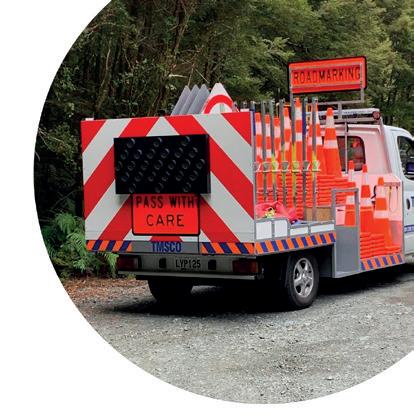








We are MTA-approved, offering a full range of mechanical services, including:
• Warrant of Fitness
• Comprehensive servicing
• Tyre replacements & alignments
• Pre-Purchase Inspections/Report
• Cam/Timing Belt Replacements
• Air conditioning servicing
• Suspension and Steering
• Cooling system diagnosis
• Transmission servicing
• Brake Diagnostics
• CV Joints & Boots
• Clutch repairs
• Batteries
• Exhaust




ARCH
ATOLL
BASIN BAY
BAYOU
BEACH
BUTTE
CALDERA
CANYON
CAPE
CHANNEL
COAST
COVE
CREVASSE
DELTA
DRAW
ANSWERS:
DUNE ESTUARY
FJORD GORGE GULLY HOODOOS ISLET KNOLL LAKE LAVA LEVEE MESA OASIS
OCEAN PLAIN
PLATEAU
RAVINE RIDGE RIVER
SALT FLAT SEA SOUND SPIT
TIDE POOL VALLEY
The old saying ‘use it or lose it’ applies as equally to mental acuity as it does to physical wellbeing, and more so as we age.
With people progressively living longer lives, it is increasingly important to look after our mental health.
So here are some activities for the mind… brain food for improving your state of mind.
RULES: Sudoku rules are simple. A 9×9 square must be filled in with numbers from 1-9 with no repeated numbers in each line, horizontally or vertically.
To challenge you more, there are 3×3 squares marked out in the grid, and each of these squares can't have any repeat numbers either.
By Ben O’Connell
Many New Zealanders are feeling the financial strain and dipping into their available savings, and older adults and senior citizens are no exception.
Acting Chief Executive Officer of the Financial Services Council (FSC), Haydee Stroud, said, “The reality is stark: 94% of New Zealanders are concerned about their finances, and many are being forced to adjust their spending habits out of necessity.”

Our research consistently shows that New Zealanders aren’t prepared for retirement, which is why we continue to call for a review of KiwiSaver settings.
This comes from the FSC’s latest Money & You research, which shows how many Kiwis are facing the choice between relieving their immediate financial pressures and saving for the future.
“While some New Zealanders can cut back on non-essential purchases like takeaways and treats, others are confronting difficult decisions, such as whether to heat their homes (24%) or afford essential medications (16%).”
“One key finding is that the amount of income that can be accessed within a week has decreased across all age groups compared to previous years.
“For retirees, one in five reports having less than a year’s worth of retirement savings to maintain their current lifestyle,” says Stroud.
“KiwiSaver remains the most popular investment in New Zealand, with 79% of New Zealanders participating and saving for their retirement.
“However, individual investment levels are falling short of what’s needed for a comfortable retirement.
“Our research consistently shows that New Zealanders aren’t prepared for retirement, which is why we continue to call for a review of KiwiSaver settings.
“A review would future-proof the scheme and help New Zealanders in the long-term, no matter the economic climate.”
“Whether your concerns are about the short-term cost-of-living or long-term investment and retirement planning, we encourage you to talk with your whānau, providers, or a registered financial adviser. It will help boost your financial confidence and wellbeing.”
The Money & You report shows a decline across all age groups in the ability to access a month’s worth of income in the case of emergencies.
The Financial Services Council reported that renters were less likely to cope with tough financial conditions than homeowners.
Saving three to six months’ worth of living expenses is the general rule of thumb, but that is largely unattainable for most of New Zealand’s population today.
The exact amount everyone has in their savings account varies based on your financial situation, job stability, and personal needs. But for those forced to live paycheck to paycheck, especially retirees, looking ahead is near impossible.


By Ben O’Connell

With updates, new models, and brand-new tech innovations, keeping up with the rapidly evolving digital world can be challenging. Younger generations have grown up amidst the Internet and its impacts, but for adults, it might not come as naturally.
Several challenges emerge as technology continues to advance. Sure, these innovations are increasing the amount of data readily available to us. But the downside is that they impact our ability to stay connected, access services, and maintain a sense of identity and independence.
Some technologies are not designed with every generation in mind. Small fonts, complex interfaces, and a lack of clear instructions can make a website unusable. Vision impairment, arthritis, and memory issues can all create barriers to effective technology use.
One solution for this is creating more user-friendly and accessible technology. Strategies that digital creators can implement include simplified interfaces, consistent navigation and predictable web layouts.
Accessibility features are also slowly being embraced by Internet builders. Voice commands, screen readers, adjustable settings, tutorials and guides, and support services help everyone get what they desire out of the Internet. Naturally, users gravitate toward the friendliest websites. By continuing to use only the easy-to-use sites, the harder-to-use sites are forced to improve.
With Internet changes come new ways to scam and trick. Due to a lack of familiarity with cybersecurity practices, those without a second-nature understanding of technology can be more vulnerable to online scams, phishing attacks, and identity theft. It’s harder than ever to protect your personal information online.
Building digital literacy - Digital literacy training aims to remedy these challenges. The Dark Times Academy is one initiative that seeks to bring community education to critical digital topics. Recently launched in Auckland, they offer a range of online courses that aim to help people become better at navigating the modern world.
“We’re aiming to make learning joyful again – something that, in our view, is much needed in these dark times that we are all living through,” says Mandy Henk, who is formerly the CEO of community education group Tohatoha Aotearoa Commons. The initiative was founded by Mandy and Byron Clark, one of the nation’s leading experts on far-right extremism.
“From understanding the role of AI in the real world and fighting disinformation to an updated take on critical literacy, our courses are scheduled to be accessible to working adults across New Zealand and a range of global time zones, including the US and Australia,” Mandy says.
The Digital Steps free, community-based digital literacy programme has a similar goal. Digital Steps runs in over 200 public libraries, community centres, and schools. For flexible and friendly training to build online skills, visit their website: steppingup.nz/programmes/digital-steps
The Internet is meant to connect us, but it can also contribute to social isolation. If you’re unable to use technology effectively, it can have the reverse effect. These challenges can lead to increased dependence on family members, friends, or caregivers for help with technology. This can be incredibly frustrating! Understanding online privacy is essential to maximising your ability to use digital means to connect with your loved ones.
And it has to be mentioned that constantly updating with technology can be expensive. In this economy!? It’s more likely than you think. Software subscriptions, services, and new devices all have their price.
Planned obsolescence - Planned obsolescence is a new phrase that refers to the practice of designing products with an artificially limited lifespan so that they become obsolete after a certain time. This can be done in many ways, from using cheap materials or making products difficult to repair to creating software updates that slow down devices over time.
Degrowth Aotearoa advocates for a transition to a less consumerist and more sustainable way of life. Opposing planned obsolescence is at the heart of their mission. Phones, batteries, and light bulbs are just some of the products that often fall victim to planned obsolescence. Printer ink cartridges, fast fashion and low-quality clothes, and new car models are also on the list. Addressing planned obsolescence starts with education. Buy durable products from companies with strong reputations. Support businesses that offer repair services and make spare parts available. Make informed choices and help create a market for products designed to last.
We must also advocate for legislation. Per Degrowth Aotearoa, in 2015, France became the first country to ban planned obsolescence. The French law requires manufacturers to provide clear information about the lifespan of their products and to make spare parts available for a minimum of ten years. There have been calls for New Zealand to follow suit.















By Jamie Quinn
This Italian orzo salad is packed with orzo, cherry tomatoes, chickpeas, cucumber, and fresh basil! It’s a flavourful combination that's perfect for a summer picnic or potluck.
Ingredients
• 350g dry orzo
• ½ C cherry tomatoes, halved
• 2/3 C cup chickpeas, drained and rinsed
• 1 medium cucumber, chopped


• 1 tbsp fresh basil, chopped
• ¼ red onion, chopped
• ½ C packed baby spinach
• 1 C Italian dressing
Serves 4
This refreshing salad is perfect for summer!
With just a few simple ingredients, you can whip it up quickly and enjoy a healthy and delicious dish.
Serves 6
Method
1. Cook orzo according to packet. Rinse with cold water, drain well and place in a large bowl.
2. Add tomatoes, chickpeas, cucumber, basil, onion and spinach.

3. Add dressing and toss to coat evenly.
Serving suggestion: Serve immediately.
Enjoy!
Ingredients
• 8 C spinach
• 2 medium nectarines, thinly sliced
• 2 C cooked chicken, seasoned with salt and pepper, then cubed
• 1 C crumbled feta
• 1 medium ripe avocado, peeled and sliced
• ½ C granola
Method
1. Whisk together dressing ingredients.
• ½ C mayonnaise
• ¼ C fresh orange juice
• 1/8 tsp ground cumin
2. In a large bowl, combine spinach, nectarines, chicken and feta.
3. Drizzle with dressing and toss to coat.
4. Top with avocado and granola.
Serving suggestion: Serve immediately.
Enjoy!
Beef skewers are a delicious and easy summer meal.
Made with flavourful marinade and grilled to perfection, these skewers are perfect for a BBQ with friends and family.
Ingredients
• 700g sirloin steak
• 2 capsicums
• 1 large red onion
• ½ C olive oil
• ¼ C Worcestershire sauce
• 2 tbsp soy sauce
• 2 tbsp apple cider vinegar
• 1 tbsp garlic powder
• 1 tsp onion powder
• 1 tbsp honey
• ½ tsp chilli powder (optional)

Method
1. Cut steak, onions, and capsicums into equal size pieces.
2. In a large container, stir together olive oil, Worcestershire sauce, soy sauce, vinegar, garlic and onion powder, honey and chilli powder if using.
3. Add steak to container and marinate for at least one hour.
4. If using wooden skewers, soak for 10 minutes before skewering steak and vegetables.
5. Preheat grill to medium-high.

6. Skewer steak cubes and vegetables, alternating to your preference.
7. Place skewers directly on grill and cook for 3-4 minutes before flipping; cook for another 3-4 minutes.
Serving suggestion: Allow to rest before serving. Enjoy!

Serves 6
Classic stuffed peppers are a surprisingly easy and satisfying meal.
They're packed with flavour and perfect for a family dinner.
• ½ C white rice, uncooked
• 2 tbsp olive oil
• 1 medium onion, chopped
• 3 cloves garlic, finely chopped
• 2 tbsp tomato paste
• 500g beef mince
1. Preheat oven to 200 degrees.
• 1 can diced tomatoes
• 1 ½ tsp dried oregano
• Salt and pepper to taste
• 6 large capsicums, tops and cores removed
• 1 C cheese of choice
2. In a large pot, cook onion until softened. Stir in garlic and tomato paste and cook until fragrant. Add mince, breaking it up as it cooks.
3. Stir in rice, diced tomatoes, oregano, salt and pepper. Let simmer, stirring occasionally, until rice is cooked and liquid has reduced.
4. Place capsicums in a baking dish and drizzle with oil. Spoon beef mix evenly into each capsicum. Top with cheese, then cover with foil.
5. Bake until capsicums are tender, about 30 minutes. Uncover and continue to bake until cheese is golden.
Serving suggestion: Serve hot! Enjoy!


Christmas can be expensive. Too expensive.
So the best way to navigate your way through the expense, and stay on financial track, is to hold fast to the money management strategies you’ve put in place over the past year, or longer.
Recent financial pressure has prompted many people to focus on their financial situation and take better control of their spending.
However, Christmas shopping presents a major threat to that focus as many families feel pressured to spend beyond their budget.
The consequences of that make for a very unpleasant shock in January when the bills come in or when there’s not enough money left for essentials.
It’s understandable that people probably want to forget about the belttightening and splash out a bit for Christmas. However, you can still take a cautious, careful approach by making a budget of what you can afford and sticking to it.
Another trap to be avoided at Christmas time is the additional costs incurred for different methods of paying for goods; for example, if you’re paying via a credit card compared to cash.
Buying a $199 pair of earrings might cost $206 if put on a credit card for three months. If you put the same purchase on hire purchase for a year, the total cost could go up to $407.
It is best to avoid forms of payments that are going to add to the overall costs.
One of the best things people can do at this time of year is plan. That means working out how much you want to spend, making a list, and starting early.
1. Shop early - Start your Christmas shopping ahead of time. Take advantage of early retail promotions and key shopping events like Black Friday and Cyber Monday.
2. Plan ahead - Make a shopping plan to ensure you secure the best deals. Research and order any essential items—especially fresh food for holiday meals—well in advance.
3. Create wish lists - Encourage family and friends to share their wish lists. This way, you can give gifts they truly want, while also being mindful of your spending.
4. Use click and collect - Many large retailers offer click and collect options, which can save you from long queues and busy stores. This method also helps you stick to your budget, as you can see your total before checkout.
5. Check delivery times - When shopping online, verify delivery times to ensure gifts arrive before Christmas. Given the busy holiday season for postal services, ordering early can help you avoid additional express shipping fees.
6. Be aware of extended shopping hours - Many retailers extend their shopping hours during the holidays. Research nearby stores and plan your visits to avoid crowds and possibly score end-of-day deals.
7. Consider electronic gifts - Gift cards sent electronically are a convenient last-minute option that can bypass postal delays. Plus, they allow the recipient to choose what they want, reducing waste and preventing unwanted items from ending up in landfills.



By Gillian Boyes, Funeral Directors Association CEO.
Shortly after I began in this role I spoke to my parents about their wishes for a funeral.
“I don’t want a fuss,” said my mum. “And it’s so expensive,” dad added.
It’s a common refrain and as a newcomer to the industry was one I was initially challenged to respond to. But over the last few months I’ve come to understand why some kind of farewell is essential to those of us left behind.
Going through old photos and reminiscing and sharing stories can be a powerful way to remember the significance of the life of your loved one. There will be laughter as well as tears and it can be an important bonding time for your family.
The funeral ‘event’ can help you begin to acknowledge the reality that someone in your life has died. Grief is a biological reaction, and it can be externalised though the event –something that will help with your immediate and future mental wellbeing.
Funerals help us recall and remember – and even learn about a loved

Many funeral homes now offer livestreaming of services reducing the cost and burden on physically attending.
Modern funerals are personalised and can encompass whatever a family needs to help them farewell their loved one in a meaningful way. Venues these days, for instance, range from churches and chapels to sports clubs, theatres, or the local club. And families are encouraged to add their own touches and tributes – both to save money but to also make it meaningful for them.
Finally, people often think they must ‘respect a person’s wishes’. But what about your own? You’re the one left behind so it’s important for you and your own wellbeing that you get that chance to say goodbye, and to have support around you.
If you genuinely fear disrespecting their wishes, have ‘that’ conversation. It doesn’t have to be morbid or difficult – after all you’ll be talking to the person you love most, and they’ll understand you will need help to carry on without them.

How many times have you sat through a funeral eulogy and realised you didn’t know a certain fact about someone? Sharing unique memories and stories helps provide support to all those who attend.
Luckily, my parents were already planning to use a Funeral Directors Association member so I don’t have to have that conversation. But with my new found knowledge I’ve also been able to talk to them about what I need from the funeral itself. And at least a little bit of fuss is what’s right for me.








Affinity Funerals is proud to be Central Otago’s only locally owned funeral service. As members of the community, we understand what it takes to craft a unique and personalised tribute for your loved one.
A funeral is a vital part of the grieving process, providing a meaningful opportunity for family and friends to come together, reflect, and honour the life of the deceased. It allows individuals to express their grief, share memories, and find comfort in the presence of others who are experiencing the same loss. Funerals help create a sense of closure, marking the transition from loss to the beginning of the healing journey.
By acknowledging the life and legacy of the deceased, a funeral can offer solace and support during a challenging time, reminding us that we are not alone in our sorrow.
It’s not easy, but it is important.
Our role is to provide compassionate guidance and support during one of life’s most difficult moments. We will take care of every detail and guide you through the care of your loved one, legal documentation, liaising with venues, and

any other logistics in preparing your loved one for their final journey.
By listening to a family’s wishes and offering options for personalising the service, our experienced team ensures that each tribute is unique. Our expertise and empathy help ease the burden on grieving families, allowing them to focus on what truly matters—honouring and celebrating the life of their loved one.

Proudly serving the communities of Alexandra, Wanaka, Cromwell, Maniototo, Roxburgh, and Queenstown.






Following a death, we can provide end-to-end care for your loved one. Our recently built Mill Creek Crematorium, located in Mosgiel, allows us to offer cremation services, as well as further flexibility for funeral arrangements.
From the moment they are transferred into our care, your loved one is treated with dignity and respect. This is crucial for a grieving family, as knowing the deceased is in caring, compassionate hands can provide comfort during an incredibly painful time.
Our Mill Creek Crematorium not only allows us to carry out a cremation, but gives you the peace of mind of knowing your loved one remains within our care during the entire process.
As a peaceful, modern venue Mill Creek’s Farewell Lounge seats 35 with room for up to 60 people. The North facing windows allow views to the Memorial Garden and hills beyond.

Whether you are situated within Otago’s Coastal, Central or Lakes District, the experienced team at Campbell and Sons Funeral Services and Affinity Funerals can arrange a funeral anywhere of significance for the deceased and offer support every step of the way.
For over 30 years, Leishman Funeral Services (formerly Doug Nesbit Funeral Services) have been providing professional, thoughtful and relaxed funeral services to the Balclutha and the wider South Otago Community.
Owner, operators Stan and Bronwyn Leishman purchased the business back in August 2020, continuing with the same caring, approachable, thoughtful team with over 20 years experience in the funeral industry.
The team continues to provide commitment to assist grieving families, to listen and take care of them throughout the planning and funeral process to ensure the farewell service is a full, respectful, appropriate and financially affordable funeral service with attention to detail, thinking outside the box if required. The team can guide you through all options available.
These days funeral services can be arranged in many forms - traditional or untraditional - we can provide a service for all budgets. We can discuss with you the WINZ funeral grant application. We can discuss with you our direct cremation package option - just ring our office to discuss options that would best fit you and your family. Anything is achievable once all the options are discussed.
Keeping up to date with new technologies, our team can provide links to livestream funeral services for those not able to attend in person.
Personalised caskets, service sheets, photo slideshows, video recordings, in-house or outside catering can also be arranged. Families tell us what they would like and we endeavour to make it happen.
Prepaid or pre arranged funerals are something we can discuss with families that wish to plan ahead. Today more and more people are realising it makes sense to make provision for a prepaid funeral.
Individuals are legally entitled to put away up to $10,000 into a pre paid funeral trust. Leishman Funeral Services can arrange this on your behalf in a Trust with Trustees Executors. Here funds remain safely invested, collecting accured interest until required. Any funds left over after payment of the funeral account will be refunded to the Estate - all managed by Trustees Executors. No matter where you go in NZ, on death, your estate will always have access to these funds.
If you have any questions or wish to discuss any of these options further, we would love to hear from you. Give us a call and one of our team members will talk you through any queries you may have. Answering questions regarding a funeral service is our passion so give us a call on 03 418 2814 or email us at office@leishmanfunerals.co.nz. Go to our website at www.leishmanfunerals.co.nz for more information about our services.


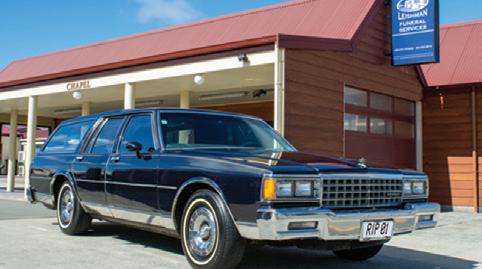




By Jen Baird, chief executive of the Real Estate Institute of New Zealand (REINZ).
It’s been a market of supply outweighing demand for several months, but as we enter spring, activity is expected to pick up — including the usual spring flurry of listings.
Typically, spring is seen as an ideal time to bring a property to market — particularly as many people look to make their buying plans this side of Christmas. Here’s what to think about as you look to list your property.
As we head into the warmer months, the market cycle tends to see more listings and an increase in buyer demand.
It is important to find a real estate professional who can deliver a standout marketing campaign, advise you on key steps for getting your property ready to list, and who will tell you what you need to know throughout the selling process.
Using a real estate salesperson can result in a more effective sale than selling privately. They will handle the details of the marketing and sales process, the cut and thrust of the negotiation or auction, and you can rest assured that you’re protected throughout the process by their expertise and requirements under the Real Estate Agents Act.
To find the right person for you, ask around; talk to family, friends and neighbours and see if they have any recommendations on real estate salespeople they have previously used and whom they had a good experience with.
It’s also fundamental to understand where the market is today before you head into the selling process. Doing some of your own research is vital however, you can rely on your salesperson to bring expertise.
Salespeople have the time, access to the latest data and market information, and to advise on exactly what is happening in your market for your type of property. Having honest conversations with your real estate salesperson will enable you to understand the current market and the best approach for selling your home.
A real estate professional will help to manage your price expectations with the latest statistics, their knowledge of the current market, the local area, what properties are attracting the most attention and why, the current levels of attendance at open homes, and more.
They should also explain what they will do behind the scenes to ensure the best possible outcome for you.

They can advise you on the best way to present your property for sale including aspects such as required maintenance, tidying up of gardens, de-cluttering, or home-staging.
With these factors come costs, and your real estate professional should ensure you are aware of the aspects you may need to invest in when selling
your home so there are no surprises, and so you can factor this into your budget.
Look for a salesperson who can demonstrate knowledge of your local area and community, ideally with a network of potential buyers, as this can help ensure your property is best positioned and marketed to the right people.
Make sure you understand what a salesperson’s commission fee is. While fees do vary by agency, our advice is that choosing a salesperson on commission alone could lead to losing a significant amount of money by achieving a lower price for the property.
The Real Estate of Institute of New Zealand (REINZ) is a champion for a world-class real estate profession delivering the best possible real estate services to New Zealanders.
Choosing a REINZ real estate professional member means you are choosing someone who is supported to excel in the profession, and are trusted, skilled professionals, supported by high-quality education, advice, and uphold the best standards of practice.


Boasting an extensive background in advertising, marketing, and promotion, I possess the expertise required to effectively showcase properties.
My approach involves collaborating with skilled local professionals to craft targeted marketing strategies that highlight the unique value of your most significant asset. By utilizing proven, multifaceted, and multiplatform methods, I ensure your property stands out in the current market. My recent acquisition of the Invercargill franchise underlines my commitment to expanding Tall Poppy’s presence, emphasizing unparalleled customer service and results-driven performance. With a passion and drive that are unmatched, I’m eager to discuss how we can achieve the best possible outcome for your property.
m 027 480 9492
k monica.cairns@tallpoppy.co.nz
E Monica Cairns- Tall Poppy Real Estate


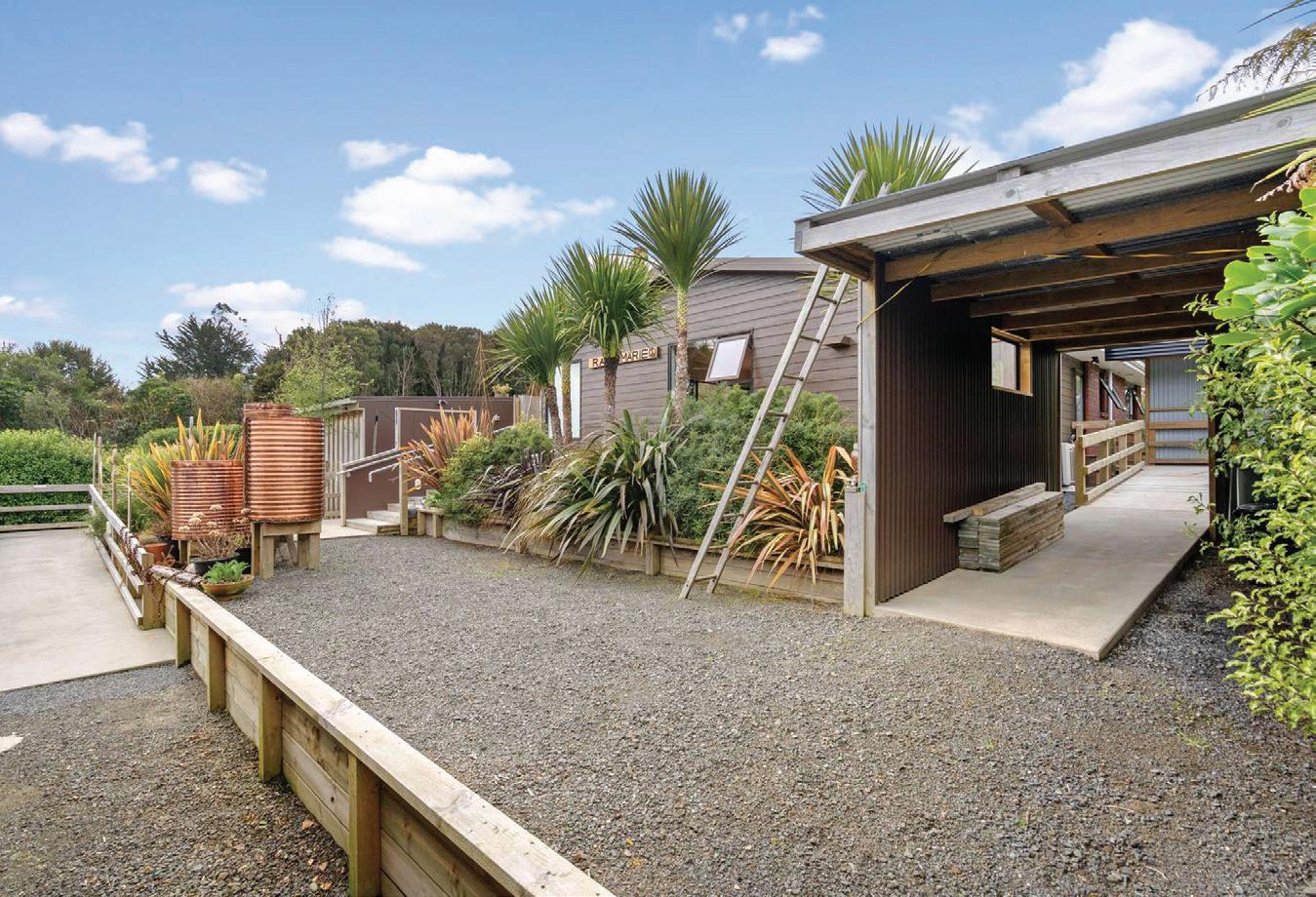


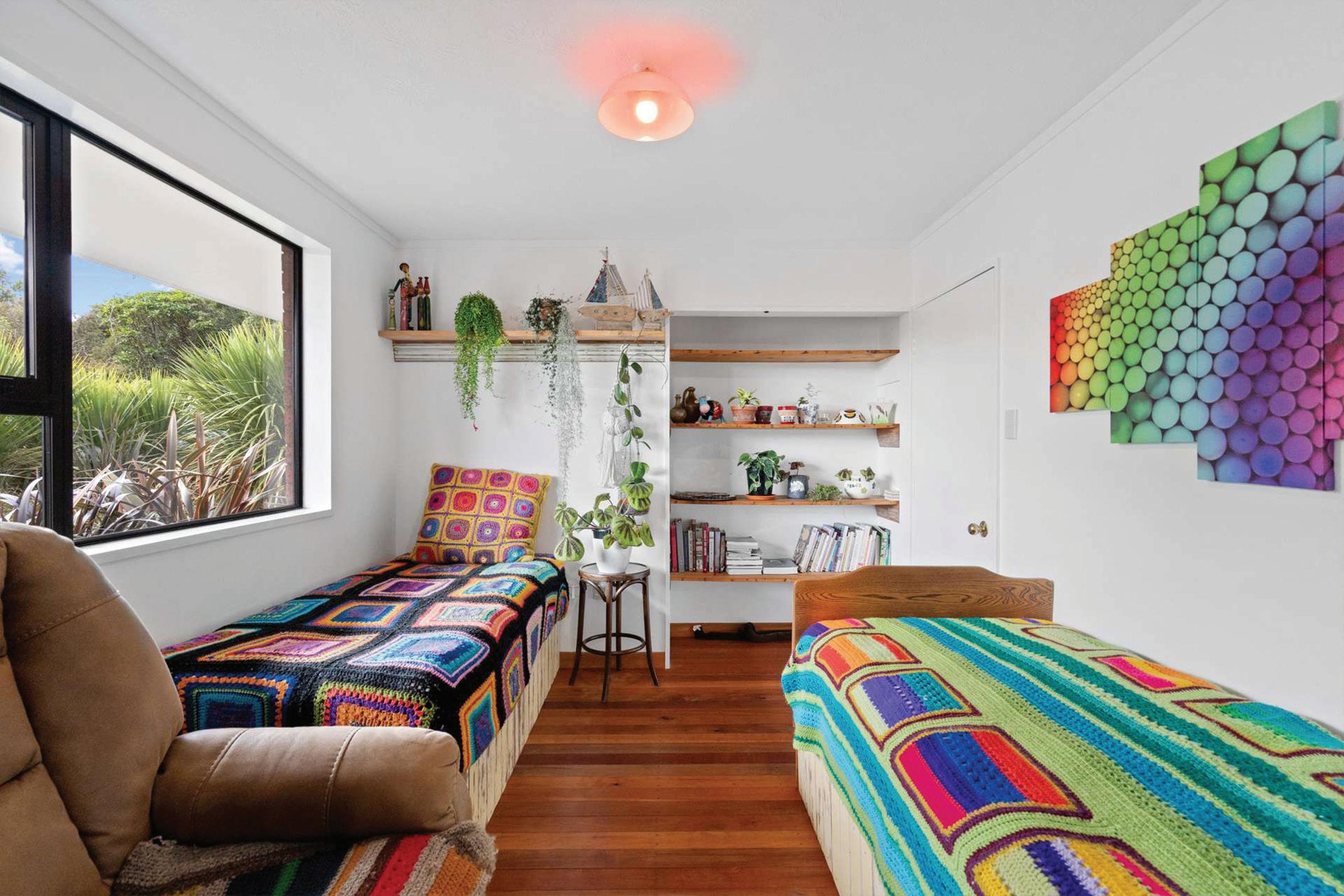




Margot is very excited to be able to offer her skills and experience to her existing and new clients and is looking forward to taking care of all your real estate needs from residential, commercial, lifestyle and farm sales.
Margot
Licensed Salesperson (REAA 2008) 027 266 3094
margot.b@arizto.co.nz
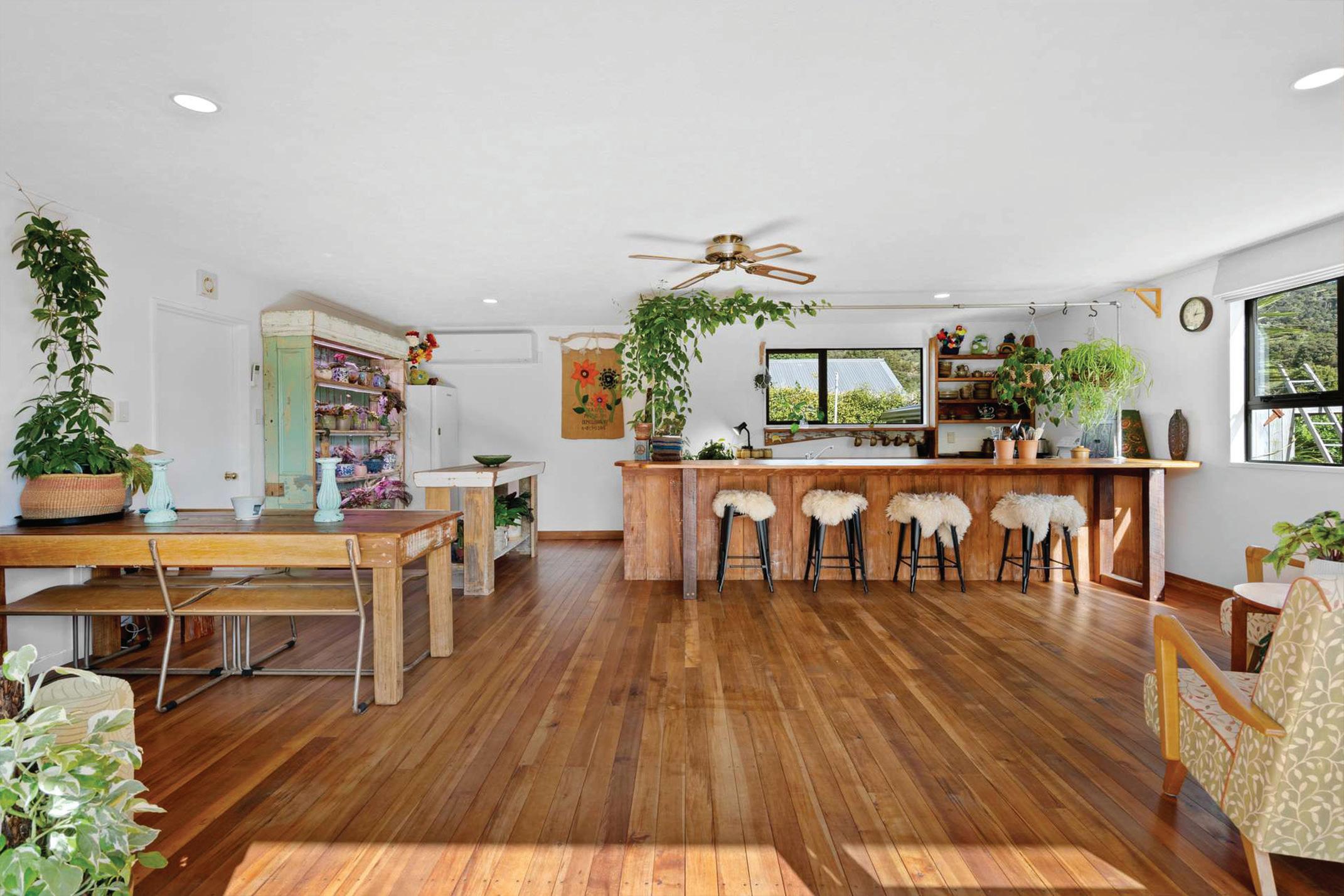

Judy is incredible. She knew what we were looking for and didn’t muck around finding our new home. Judy went above and beyond to help us sort everything. As we are not from the south island, Judy sorted all our builders reports for us and looked after our house until we arrived. I wouldn’t go to anyone else, Judy is the person you want if you want results.
Judy Ludemann- You have been simply the best.
Judy was fantastic. She was always available to answer any of our questions and was such a calming voice to us during the stressful time of relocating! She was never pushy, but always guiding us with her years of knowledge and backing it up with the current market data.
Judy is inherently reliable, supportive and hard-working, and she’s known for her commitment to the bigger picture in the lives of the people she works with. Personal integrity and a resolute willingness to go the extra mile have helped generate an impressive track record: many happy clients eagerly turn to her as their only choice when they come to buy or sell again. An assured understanding of her obligations and responsibilities as a real estate professional puts people at ease as Judy leaves no stone unturned in her sales process. She is a consummate professional and a prime representative of the Harcourts brand. She truly embodies the fantastic service Harcourts clients expect and she operates with complete confidence and expertise in our systems and processes.
Cromwell




Heather believes real estate anywhere in the world rests on key principles: understanding clients’ needs, quality marketing, service excellence, honesty, knowledge, and hard work. She’s passionate about her community and is actively involved in charitable organisations, standing by her 1986 motto: “Meet as a stranger, stay as a friend.”
Heather understands that selling your biggest asset is a significant decision. That’s why she encourages you to interview your agent as though they were applying for a job. If you’re considering selling or simply want a confidential appraisal, interview Heather today.



Looking for the best results? We make it possible

I understand that buying or selling a property can feel like a daunting process, and that is why I am here. It can be an emotional process, so I approach every client with empathy and understanding.
I am here to offer my knowledge, take away any stress and help you move forward with ease to the next stage of your journey. It would be my pleasure to meet with you, have a cuppa and find out how I can help.

Carol loves creating the happy story in the Real Estate journey for people. Buying or Selling property is one of the biggest commitments in people’s lives and can be a stressful experience.
Carol understands this and is ready to guide her clients through the process with sound advice, market knowledge, a work ethic second to none and believes communication is KEY.
With 13+ years in the industry specialising in Residential/Lifestyle market and strong connections with Central Otago, Carol believes in giving back to the community she lives in. Carol does this by volunteering at the Hospice Shop, Alexandra, Meals on Wheels, Central cinema, Alexandra. She also sponsors Alexandra District Club Indoor/Outdoor Bowls, Alexandra Golf Club, Alexandra Citizens, Omakau School, and Clyde Bowling Club.
Loving what you do reflects on the people you interact with and the job well done. This passion for helping others underlies all

aspects of the selling process in order to provide a top-tier service, it is crucial for all professionals to continually educate and improve themselves. The more an agent knows about the Real Estate market, the better served are her clients. It takes an experienced Real Estate agent to properly negotiate on your behalf, when so much is at stake.
With her long career in the customer service industry and having owned a business, Carol has built a wealth of knowledge which aids her immensely in Real Estate. Carol is driven for her clients and will go the extra mile-”the difference between good and great is a little extra effort!” For great results-call Carol today
Top 68 out of 415 salespeople Property Brokers Nationwide
A
and a "go the extra mile" attitude,
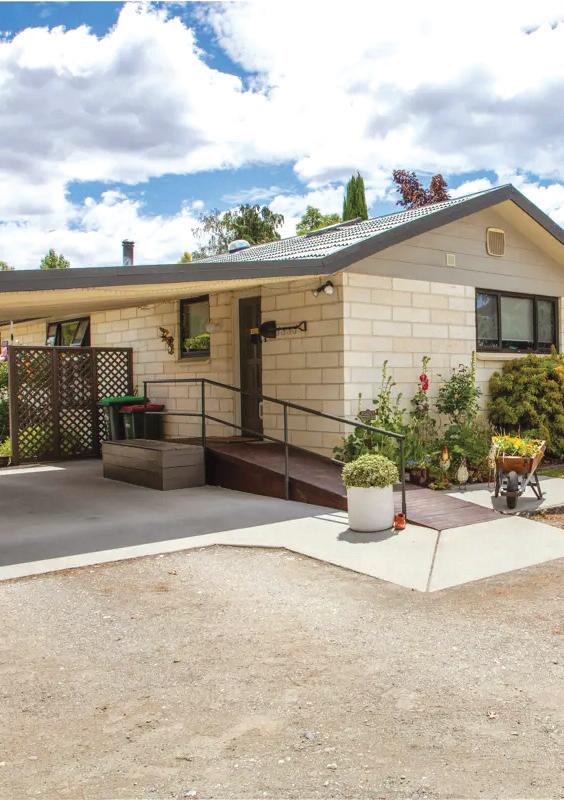


SuperGold helps you stretch your money further, offering instant discounts, special offers on everyday essentials and more. Explore the many ways you could save locally and nationwide.
SuperGold - or the ‘gold card’ as some people know it - gives you golden opportunities to stretch your money further. There are thousands of instant discounts and special offers. You will find all sorts of ways to make instant savings every day near you across New Zealand and in Australia.
The card gives you:
• Instant savings on everyday essentials like electricity, insurance, food and healthcare
• Discounts on entertainment, travel and in retail stores
• High value special offers
• Free off-peak public transport.
Getting an automatic SuperGold Card
Once your New Zealand Superannuation or Veteran’s Pension has been granted, the Ministry of Social Development (MSD) will automatically send your SuperGold Card in the mail.
This usually only takes a few weeks, but you may have to wait a month or two if you apply for New Zealand Superannuation prior to your 65th birthday.
SuperGold is one way the New Zealand government and business communities can say ‘thank you’ or ‘tēnā rawa atu koe’ to older New Zealanders for the work they have done raising families, supporting communities and contributing to Aotearoa.

If you do not receive or are not eligible to receive New Zealand Superannuation, you can still apply for a SuperGold Card. You must be 65+ years old and be a New Zealand resident. Simply fill in the SuperGold Card application and return it to us.
Call: 0800 25 45 65 (Monday – Friday, 8am-5pm)
Email: information@supergold.govt.nz
SuperGold Centre PO Box 5054
Wellington 6145 www.supergold.govt.nz
Veteran SuperGold is a specially branded SuperGold Card to recognise service to our country in the Armed Forces.
Once your Veteran’s Pension has been granted, the Ministry of Social Development (MSD) will automatically send your SuperGold Card in the mail. This usually only takes a few weeks, but you may have to wait a month or two if you apply for New Zealand Superannuation prior to your 65th birthday.
The fast and easy way to find discounts and offers when you’re out and about is to use the SuperGold app. If you have a smartphone or tablet, download the SuperGold app from the Apple Store or Google Play.
The Office for Seniors is working to improve the lives of older people across New Zealand. Their website and regular email newsletter provide helpful information, news, and stories for older people.
Visit: www.officeforseniors.govt.nz

Call: 0800 25 45 65 (Mon-Fri, 8am-5pm)
Email: information@supergold.govt.nz
Can I use my SuperGold Card to travel free on public transport?
Yes. Most areas off-peak is usually 9am to 3pm and from 6.30pm to the end of service on weekdays, and any time on weekends and public holidays. In most areas you will also need a smart card from the Regional Council to access free off-peak travel.
How do I order a replacement card?
If your SuperGold Card is lost, stolen, damaged or if you change your name, call or email us to order a replacement card. You will need to let us know your full name, date of birth, current residential and postal address and SuperGold Card client number if you have one (found on the back of your SuperGold Card). You should receive a replacement card within three weeks – free of charge.
When will I receive my SuperGold Card?
You will be automatically issued a SuperGold Card when you’re granted New Zealand Superannuation or a Veteran’s Pension or a main benefit at age 65 or over.
Your New Zealand Superannuation will need to be approved at least three weeks before turning age 65 if you wish to receive your SuperGold Card by your 65th birthday.
Is SuperGold connected to my New Zealand Superannuation?
Once your New Zealand Superannuation or Veteran’s Pension has been granted, the Ministry of Social Development (MSD) will automatically send your SuperGold Card in the mail.
If you do not receive or are not eligible to receive New Zealand Superannuation, you can still apply for a SuperGold Card.
If you are turning 65 and receiving a main benefit from the Ministry of Social Development, your SuperGold Card will arrive at least three weeks after you are granted New Zealand Superannuation on your 65th birthday.
If you are not applying for New Zealand Superannuation then you will need to call or email us to advise you have turned 65 so the MSD can send you a new SuperGold Card.
How does the Community Services Card work with SuperGold?
If you have a current Community Services Card at the time you are granted New Zealand Superannuation, and you may continue to qualify for a Community Services Card, you will need to complete a Community Services Card application form to get a new SuperGold/Community Services Combo Card. It will have the initials CSC on the back and an expiry date.
Your new combo card’ replaces your Community Services Card. You can use this card for both health subsidies and SuperGold discounts.
Since May 2010, the only SuperGold cards with an expiry date are those which double as both a Community Services Card and SuperGold Card. These ‘combo cards’ have an expiry date because entitlement to a Community Services Card can change over time.

If the back of your card includes an expiry date (EXP) and this date has expired, call 0800 25 45 65 or email information@ supergold.govt.nz to arrange a replacement card.
If you are not normally a resident in New Zealand and do not intend to stay here, you will not qualify to receive a SuperGold Card.





where every day feels like coming home
Welcome to Rosebank Lifecare! Established in 1992, we’re here to offer you a place of tranquillity where you and your loved ones can feel safe, secure, and cared for by our amazing staff.
With a hospital, rest home facility, independent villas, and serviced care suites, we cater to a wide range of needs. Our warm and friendly atmosphere, along with comfortable facilities, make it the perfect place to call home.
We believe in living life to the fullest, no matter your health or condition. Each resident is uniquely valued, with their life experiences and personal values respected. We truly value the support of family and friends in helping our residents thrive. All enquiries and visits are welcome - we can’t wait to show you our facility!
If life is what you make it, choosing Rosebank Lifecare may just be the best decision you ever make.
Come join our retirement village, where every day feels like a vacation with neighbours who become family. Experience the warmth and security of a community where everything is taken care of - from maintenance to garden upkeep. Say goodbye to worries and hello to a carefree lifestyle.
Where independence meets security and community meets convenience. Located on Walnut Avenue, in the heart of Ashburton, our small but welcoming village offers a sense of belonging while giving you the freedom to choose your level
of involvement. Enjoy the beautiful Ashburton Domain just a stone’s throw away, perfect for a leisurely stroll or picnic with family and friends. Our 2 & 3-bedroom villas are designed for warm modern living, with spacious living areas, private gardens you can add your personal touch to, and attached garages for your convenience. Family and friends are welcome to visit and stay with you anytime. Plus, your furry friends are welcome to join you!
Looking for your dream villa? Look no further! Villas are available now, so why wait? Enquire today and make your dream a reality!
Meet Kathleen, our neighbourhood’s angel, always spreading love and light!
Kathleen is our friendly village coordinator, who is always there to lend a helping hand or plan exciting weekly outings around our region. Whether it’s a trip to Methven, Timaru, or beyond, there’s always something fun in store.
Experience the best of both worlds at Rosebank Villageindependent living with a tight-knit community to support you every step of the way. Make a choice to live a full and active life surrounded by caring neighbours who feel like family. Come see for yourself why Rosebank Village is the perfect place to call home.
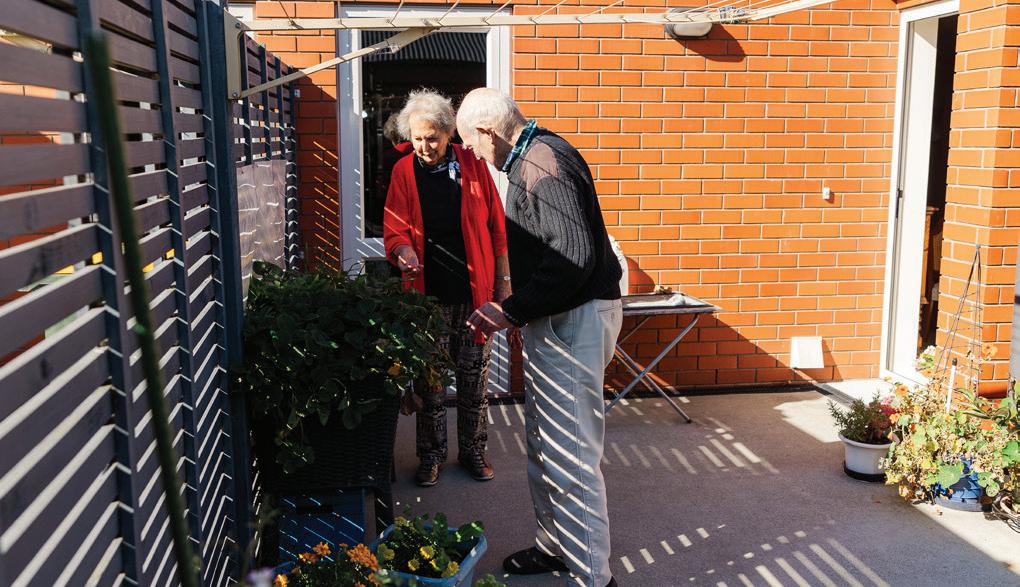

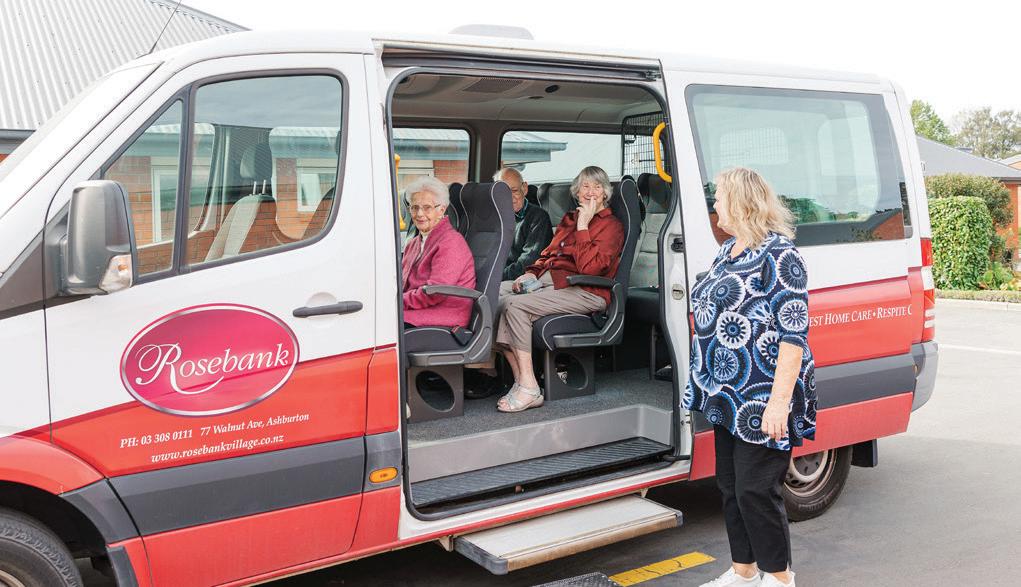
Say goodbye to worries and hello to comfort in your golden years! Let the care come to you in your dream aged care serviced care suites.
Looking for a little extra support without giving up your independence? Look no further than Rosebank’s serviced care suites which are due for completion late 2024! Enjoy the privacy of your own space while receiving daily meals, laundry, and housekeeping assistance if you require it. Plus, with a variety of care options available, you can tailor your support to fit your needs now and in the future without the hassle of moving again.
Live life to the fullest without worrying about maintenance or security - you deserve it!
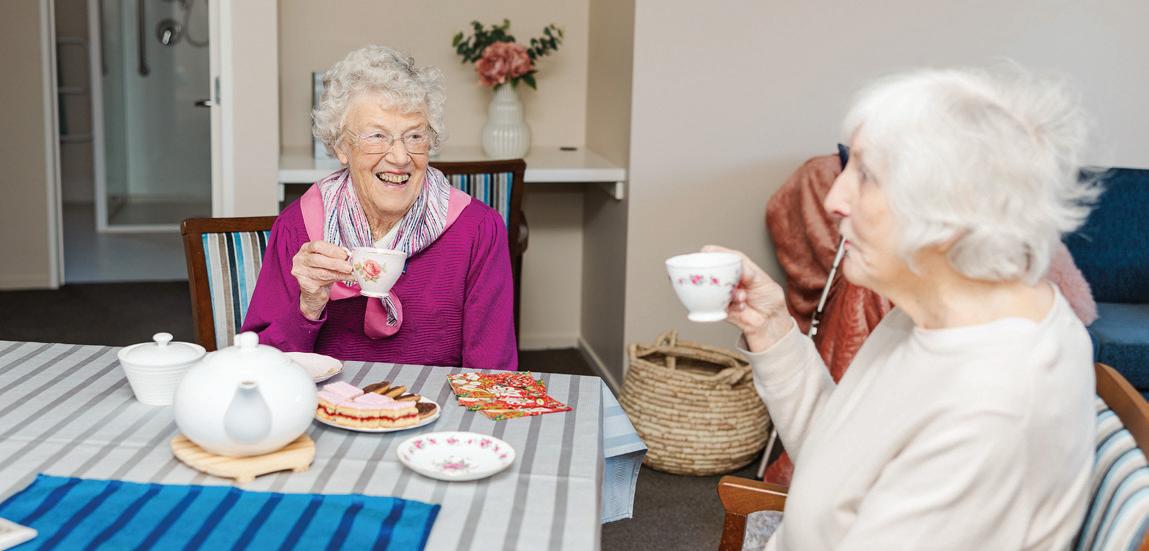
Get the support you need without sacrificing your freedom! Check out Rosebank’s serviced care suites coming soon in 2024.
Make the decision today to live a full and active life, with wrap-around care services in a community that truly cares. Come visit us and see why Rosebank Lifecare is the perfect place to call home. Call Sue Prowse today 03 308 0111.
77 Walnut Avenue, Ashburton | 03 308 0111 | rosebanklifecare.co.nz
